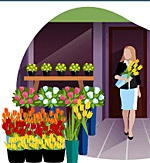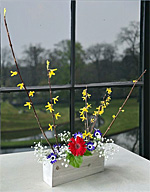Contaminants? Test Your Soil and Know Your Risk
 Special to Road Trips for Gardeners
Special to Road Trips for Gardeners
By Soil Science Society of America
Soil is all around us, in cities and rural areas. But some soil becomes contaminated. The Soil Science Society of America (SSSA) “Soils Matter” blog dated February 15, 2019, summarizes common contaminants and the risks they carry.
“The biggest risks for soil contamination are in urban areas, and former industrial sites,” writes Lauren Svejcar, a researcher at Murdoch University. “Common contaminates in urban soils include pesticides, petroleum products, radon, asbestos, lead, chromated copper arsenate, and creosote.”
Svejcar has specific tips for gardeners. “Urban gardens are usually a good idea, but it’s best to know your soil. Many vegetables and herbs can absorb contaminants as they grow. That puts you at risk if you eat them. Also, vegetables and herbs can have dust on them coming from contaminated soil. If not properly washed, you could ingest the contaminants. Some garden beds may also be lined with chemically treated wood. If you did not build your garden beds yourself, it’s best to test your soil because the chemicals can leach into the garden soil.”
“If you are unsure about the condition of the soil near your home or property, it’s best to have a soil test done to be sure about its safety,” Svejcar says. “Of course, most soil is perfectly safe for play, gardening and recreation, but it’s best to be safe.”
To read the entire blog post, go online.
The Soil Science Society of America, based in Madison, Wisconsin, is a progressive, international scientific society that fosters the transfer of knowledge and practices to sustain global soils.
(Photo, courtesy of Nall Moonilall, shows a student collecting soil samples for analysis in Columbus, Ohio)







